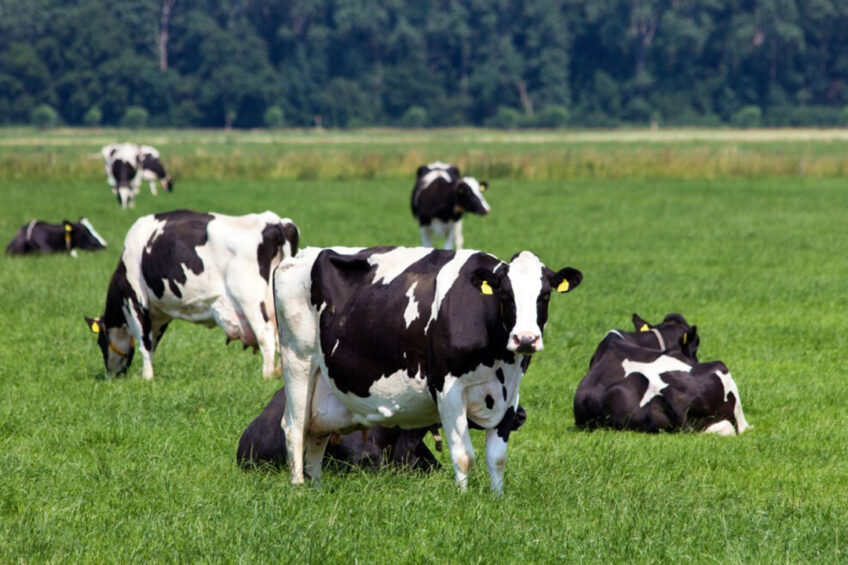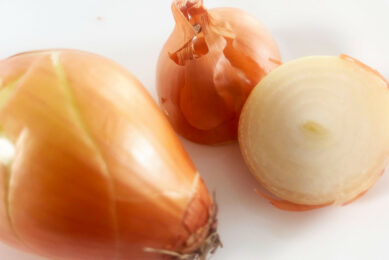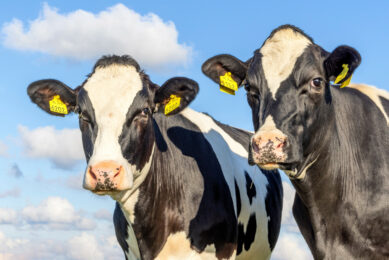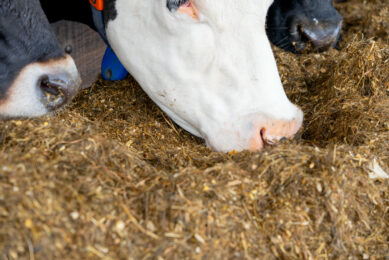Nutritional supplements for well-performing ruminants

Many farmers are using nutritional supplements to improve digestive functions; promote vitality, health, immunity and reproduction; and maintain a good body balance. A survey done in France in 2019* shows that 45% of farmers are using nutritional supplements.
Ruminant farming has permanent challenges due to the specific digestive system of ruminants and the fluctuating quantity and quality of forages throughout the year. The management of critical periods is also an important challenge for the breeder in order to reach good profitability. Each of these key stages requires a specific nutritional intake.
Feed supplementation is the process of adding specific nutrients to animal feed or rations to increase levels of some nutrients in the whole diet or make up for a feed deficiency. Nutritional supplements are a mixture of selected additives that address zootechnical challenges during a specific phase of an animal’s life, generally during a limited time and with a dosed feed intake per animal.
These critical phases can include young growing animals, early or late production and even a non-productive phase. These specialties are developed to respond and offer solutions to a specific challenge or situation that may happen in production. Nutritional supplements can be incorporated into compound feed or used in top feeding.
Specialised nutritional supplements address 7 main ruminant challenges.
 Young animal health
Young animal health
Calfhood diseases have a major impact on the economic viability of cattle operations due to the direct costs of calf losses and treatment, as well as the long-term effects on performance (Donovan et al., 1998). Many supplements are available on the market to support the immunity and vitality of young ruminants, such as syringes of immunoglobulins, electrolytes in powder for rehydration or a mix of additives to prevent respiratory and digestive issues. All these solutions are commonly used to improve the first step in life and allow healthy and productive animals in the future.
 Farm management
Farm management
Today, farmers are looking for more work efficiencies due to constant increases in herd size. Some solutions can be proposed that allow farmers to avoid a lot of herd manipulation. Boluses that include minerals, vitamins or plant extracts are a good option, especially for grazing animals. These boluses are designed to release the requirements for as long as the animal has to overcome a critical phase or has specific needs.
For example, some boluses can have a long-lasting release of 6 months for grazing animals with difficult access.
 Transition period
Transition period
We know that for dairy cows the transition period of 6-8 weeks around calving is critical: 75% of health problems in dairy cows occur during this time (James, 2010). Most supplements available on the market for this period are designed to prevent metabolic diseases such as ketosis, hypocalcemia, fatty liver, etc. These products can be in powder or liquid form; for example, some glucose precursors include monopropylen-glycol and/or glycerol.
 Fertility
Fertility
Reproductive problems are the most common issues that occur in lactating dairy cows, and they can dramatically affect the reproductive potential of the dairy herd. Poor reproductive performance is a major cause of involuntary culling. It therefore reduces the opportunity for voluntary culling and has a negative influence on the subsequent productivity of a dairy herd (Tegegne, 1989; ILCA, 1998; Kerslake et al., 2018).
Nutrition has a major influence on the fertility of dairy cows (Bisinotto, 2012) and it is commonly used as a tool to improve reproduction performance. Supplements generally include vitamins from group B, beta-carotene and specific trace elements under organic forms.
 Feed efficiency
Feed efficiency
Feed efficiency in ruminants can be defined as the fraction of feed nutrient captured in marketable products (VandeHaar et al., 2016). It allows farmers to utilise their resources more effectively. Farmers’ economic expectations are growing with cost increases, especially today. Improving feed efficiency has a significant impact on the profitability of ruminant farming.
The digestion system of ruminants plays a huge role in determining the level of feed efficiency achieved. The rumen and its microbial population are central to this digestion process. The nutritional supplements that address this challenge mainly focus on optimising rumen fermentation to extract maximum nutrients from the feed. Maintaining a stable environment for the rumen microbial population by minimising changes in rumen pH allows bacteria to live in harmony, digesting the range of carbohydrates consumed by the ruminant. Feed efficiency of ruminants is going to be an essential area to focus on in the future, both economically and environmentally.
 Welfare
Welfare
The concept of animal welfare includes 3 elements: the animal’s normal biological functioning (ensuring that the animal is healthy and well nourished), its emotional state (including the absence of negative emotions, such as pain and chronic fear) and its ability to express certain normal behaviours (Fraser et al., 1997).
Regarding the first element and mitigating stressful situations, many nutritional solutions and natural alternatives can be proposed to farmers in order to have healthy animals. Generally, the aim is to prevent problems of respiratory diseases, locomotion, digestive problems linked to parasitism or the negative consequences of heat stress.
 Animal product quality
Animal product quality
The goal of the industry is to provide consumers with safe products with high-quality characteristics. Many studies have demonstrated that nutrition affects the quality of animal products such as milk or meat. For milk, we are generally talking about the protein, fat or lactose content. For meat, we are looking to manage marbling (intramuscular fat content), tenderness, juiciness and flavour. With a well-balanced diet, good feeding management and the supply of some specific nutrients or additives, we are able to support these characteristics.
Some specific formulations or additives can be integrated into the diet to improve meat or milk characteristics, such as short fatty acids, vitamins or rumen-protected amino acids. For example, we know that feeding vitamin E improves colour stability and freshness, tenderness, juiciness and oxidative stability, as well as extending the shelf life of meat (Dirinck et al., 1996; Enser, 1999, Aalhus & Dugan, 2001).
Nutritional supplements
Wisium has developed a portfolio of nutritional supplements for ruminants which cover different types of production challenges. These supplements are the result of our nutritional know-how with a specific composition. They all have one or more attributes. These range from improving the characteristics of animal products to taking into account animal welfare, as well as the environmental consequences of animal production. These solutions often include a holistic approach, including laboratory analysis and/or on-farm technical support in addition to formulation.
* ADQuation, 2019 – 308 farmers interviewed
Join 13,000+ subscribers
Subscribe to our newsletter to stay updated about all the need-to-know content in the dairy sector, two times a week.










